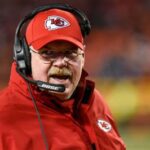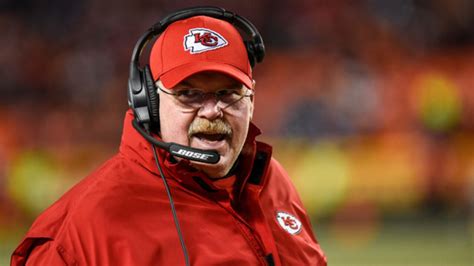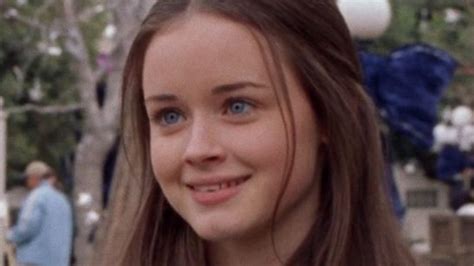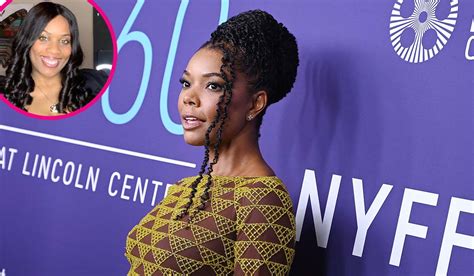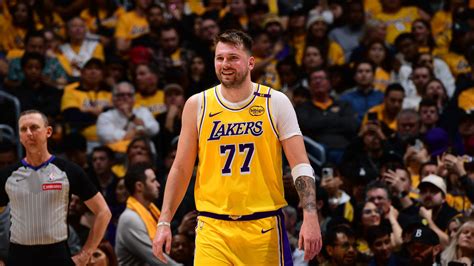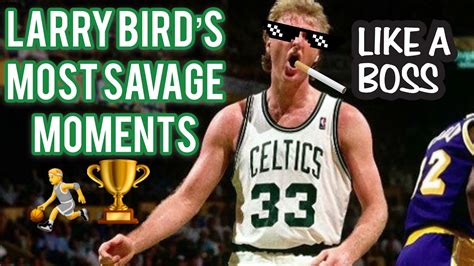
Larry Bird’s nonchalant shrug and seemingly indifferent “I could care less” response to being excluded from a list of the NBA’s all-time greatest players perfectly encapsulates the legendary Boston Celtics forward’s competitive fire and unwavering self-belief.
Larry Bird’s reaction to an ESPN list ranking the NBA’s top players has reignited discussions about his unparalleled confidence and legacy. When asked on the Dan Patrick Show about not being included among the top players listed, Bird simply shrugged and said, “I could care less.” This response, seemingly indifferent on the surface, is being interpreted by many as a quintessential Bird moment, highlighting his intense focus on team success and his unwavering belief in his own abilities, regardless of external rankings or accolades. His legendary career with the Boston Celtics, marked by three NBA championships, three MVP awards, and twelve All-Star selections, cemented his place as one of the game’s all-time greats, a status seemingly unaffected by any perceived slight.
Bird’s dismissive remark, broadcast on the Dan Patrick Show, quickly went viral, sparking a wave of reactions from fans and analysts alike. Many see it as a reflection of Bird’s old-school mentality, where winning and team accomplishments overshadowed individual recognition. Others interpret it as a testament to his self-assuredness, suggesting that he simply doesn’t need external validation to know his worth as a player. This moment provides a lens through which to examine Bird’s impact on the game, his unique personality, and his enduring legacy.
“I could care less,” Bird nonchalantly told Patrick when asked about being omitted from the unnamed list. The simple statement spoke volumes. It was a vintage Bird response—unassuming, confident, and utterly indifferent to external validation. The phrase itself, a grammatically incorrect expression meaning “I couldn’t care less,” only adds to the charm and perceived authenticity of Bird’s reaction.
Bird’s legacy is one of relentless competitiveness, unparalleled skill, and an unwavering belief in his own abilities. He was not merely a scorer or a rebounder; he was a complete basketball player who excelled in every facet of the game. His passing ability was exceptional, his court vision was unmatched, and his clutch performances were legendary. He elevated the play of his teammates and led the Celtics to three NBA championships in the 1980s, a decade dominated by the rivalry between Bird’s Celtics and Magic Johnson’s Los Angeles Lakers.
The “I could care less” shrug has become synonymous with Bird’s personality. It’s a symbol of his unwavering confidence, his disdain for individual accolades, and his focus on team success. It also offers insight into the mindset of a player who consistently thrived under pressure and delivered in the biggest moments.
This latest episode serves as a reminder of Bird’s enduring appeal and the lasting impact he had on the NBA. His combination of skill, competitiveness, and charisma made him one of the most beloved and respected players in the history of the game. While rankings and lists may come and go, Bird’s legacy as a true icon of the sport remains firmly intact, seemingly impervious to the opinions of others.
The context surrounding the list that triggered Bird’s response is somewhat vague. While the specific list mentioned on the Dan Patrick Show remains unnamed, the omission of a player of Bird’s caliber is inherently noteworthy. What’s most relevant, however, is not the list itself, but Bird’s reaction to it. This reaction allows for a deeper exploration of his competitive spirit, his views on individual versus team accomplishments, and his overall approach to the game.
Bird’s career statistics speak for themselves: a career average of 24.3 points, 10.0 rebounds, and 6.3 assists per game; three NBA championships (1981, 1984, 1986); three MVP awards (1984, 1985, 1986); two Finals MVP awards (1984, 1986); twelve All-Star selections; and numerous other accolades. However, statistics alone do not fully capture Bird’s impact on the game. He was a master of the fundamentals, a brilliant passer, and a clutch shooter who consistently came through in the most critical moments.
Beyond his individual accomplishments, Bird was also a transformative leader who elevated the play of his teammates. He made those around him better, fostering a culture of teamwork and accountability. His rivalry with Magic Johnson transcended basketball, captivating the nation and helping to popularize the NBA during the 1980s. Their contrasting styles and personalities created a compelling narrative that drew in new fans and transformed the league into a global phenomenon.
Bird’s nonchalant response to the list also contrasts sharply with the behavior of many modern athletes, who are often highly conscious of their public image and eager to promote their individual brands. Bird, on the other hand, has always seemed relatively indifferent to such concerns, preferring to let his play on the court speak for itself. This old-school mentality is part of what makes him so appealing to many fans.
His approach to the game was characterized by a fierce determination to win, a relentless work ethic, and an unwavering belief in his own abilities. He was not afraid to trash-talk opponents, but he always backed it up with his performance on the court. He possessed a rare combination of skill, athleticism, and mental toughness that made him one of the most formidable players in the history of the game.
Bird’s influence extends beyond the basketball court. He has served as an executive for the Indiana Pacers, demonstrating his knowledge of the game and his ability to evaluate talent. He has also been a role model for countless young players, inspiring them to work hard, to pursue their dreams, and to never give up.
In conclusion, Larry Bird’s “I could care less” shrug is more than just a fleeting moment; it’s a symbol of his unique personality, his unwavering confidence, and his enduring legacy. It serves as a reminder of what made him one of the greatest players of all time and why he continues to be revered by fans around the world. His response encapsulates a career defined by winning, leadership, and a quiet, steely determination that needed no validation from outside sources. Bird’s focus was always on the team, on the Celtics, and on the pursuit of championships, and that focus remains his defining characteristic even in retirement.
The ESPN list, while a potential slight, is ultimately secondary to the larger narrative of Bird’s career. It’s his championships, his MVPs, his iconic moments, and his impact on the game that truly define his legacy. And it’s his “I could care less” shrug that perfectly encapsulates his attitude towards individual accolades and external validation. He knew his worth, and that was all that mattered.
The long-term impact of Bird’s career continues to be felt in the NBA today. His style of play, characterized by ball movement, spacing, and unselfishness, has influenced countless coaches and players. His example of hard work, dedication, and mental toughness continues to inspire young athletes. And his rivalry with Magic Johnson remains one of the most iconic in sports history, a testament to the power of competition and the enduring appeal of the game of basketball.
Bird’s story is one of perseverance, dedication, and unwavering belief in oneself. He overcame humble beginnings to become one of the greatest players of all time, leaving an indelible mark on the NBA and inspiring generations of fans. His “I could care less” shrug is just the latest chapter in his remarkable story, a reminder that true greatness comes from within and that external validation is ultimately meaningless.
The ripple effects of his influence are also visible in the increased emphasis on skill development in modern basketball. Bird was a master of all aspects of the game, and his well-rounded skillset has become a model for aspiring players. He was not just a scorer or a rebounder; he was a complete player who could pass, dribble, shoot, and defend at an elite level.
This well-roundedness is a testament to Bird’s dedication to mastering every aspect of the game. He spent countless hours honing his skills, perfecting his shot, and studying the nuances of the game. He was a student of the game, always looking for ways to improve and to gain an edge over his opponents.
Bird’s impact on the business side of basketball is also significant. His rivalry with Magic Johnson helped to transform the NBA into a global entertainment brand, paving the way for the league’s explosive growth in the 1990s and beyond. Their contrasting styles and personalities created a compelling narrative that drew in new fans and generated unprecedented levels of media attention.
Their rivalry also helped to break down racial barriers and to promote a more inclusive and diverse image of the NBA. Bird and Johnson were two of the most popular and respected players in the league, and their friendship transcended racial lines. They demonstrated that people from different backgrounds could come together and achieve great things, both on and off the court.
Bird’s legacy as a cultural icon is also undeniable. He has been featured in numerous commercials, movies, and television shows, and his name has become synonymous with excellence, hard work, and success. He is a role model for people of all ages and backgrounds, inspiring them to pursue their dreams and to never give up.
In many ways, Bird embodies the American dream. He rose from humble beginnings to become one of the most successful and admired athletes in the world. His story is a testament to the power of hard work, dedication, and perseverance.
The “I could care less” shrug is a perfect encapsulation of Bird’s overall attitude towards fame and fortune. He has never seemed particularly interested in the trappings of celebrity, preferring to focus on the things that truly matter to him: family, friends, and the game of basketball.
This down-to-earth attitude is part of what makes him so appealing to fans. He is seen as an authentic and genuine person who has not been corrupted by fame and fortune. He remains true to his roots and continues to embody the values of hard work, humility, and integrity.
Larry Bird’s impact on the game is undeniable, and his influence will continue to be felt for generations to come. His legacy is one of excellence, leadership, and unwavering dedication to the sport of basketball. He is a true icon of the game, and his “I could care less” shrug will forever be remembered as a symbol of his unique personality and his unwavering confidence.
Ultimately, Bird’s “I could care less” statement highlights a key difference between eras in basketball. While today’s players often prioritize individual accolades and social media presence, Bird’s generation was primarily focused on team success and winning championships. His comment, therefore, is not just a dismissal of a ranking, but a reflection of a different set of values and priorities.
The anecdote serves as a powerful reminder that greatness is often defined by more than just statistics or individual achievements. It’s about leadership, impact, and a commitment to excellence that transcends external validation. Bird’s career, and his dismissive shrug, embody these qualities, solidifying his place as a true legend of the game.
The story also prompts a broader discussion about the nature of rankings and lists in sports. While such lists can be entertaining and generate debate, they are inherently subjective and often fail to capture the full complexity of a player’s career. Bird’s reaction suggests that he understands this limitation and that he places little value on such external assessments.
His focus remains on the tangible accomplishments of his career: the championships, the MVPs, and the memories he created with his teammates and fans. These are the things that truly matter to him, and they are the things that will endure long after the rankings and lists have been forgotten.
Larry Bird’s simple phrase, delivered with a shrug, has resonated with fans because it speaks to a deeper truth about success and fulfillment. It suggests that true greatness comes from within and that external validation is ultimately less important than the satisfaction of knowing that you have given your all to something you believe in. Bird’s career, and his dismissive response, serve as a powerful reminder of this timeless lesson.
Frequently Asked Questions (FAQ)
1. What exactly did Larry Bird say, and in what context?
Larry Bird said, “I could care less,” when asked about being excluded from an unnamed list ranking the NBA’s top players. This occurred during an appearance on the Dan Patrick Show. The statement was made in response to Patrick bringing up his name not being on the list.
2. Why is Larry Bird’s “I could care less” reaction considered significant?
The reaction is considered significant because it embodies Bird’s personality: confident, indifferent to external validation, and focused on team success. It reinforces his image as an old-school player who prioritized winning over individual accolades and personal branding. It also emphasizes his internal self-belief, suggesting he doesn’t need others to validate his achievements.
3. What are some of Larry Bird’s most significant accomplishments in the NBA?
Larry Bird’s most significant accomplishments include:
- Three NBA championships with the Boston Celtics (1981, 1984, 1986)
- Three NBA MVP awards (1984, 1985, 1986)
- Two NBA Finals MVP awards (1984, 1986)
- Twelve-time NBA All-Star selection
- NBA Rookie of the Year (1980)
- Member of the NBA’s 50th and 75th Anniversary Teams
4. How did Larry Bird’s rivalry with Magic Johnson impact the NBA?
Bird’s rivalry with Magic Johnson was transformative for the NBA. It captivated a national audience, drawing in new fans and popularizing the sport during the 1980s. Their contrasting styles and personalities created a compelling narrative, and their competition helped to break down racial barriers and promote a more inclusive image of the league. The rivalry significantly contributed to the NBA’s growth into a global entertainment phenomenon.
5. What is Larry Bird doing now?
While the article doesn’t specify what Larry Bird is currently doing, it does mention that he has served as an executive for the Indiana Pacers. Public records and news outlets confirm that Bird served as the President of Basketball Operations for the Indiana Pacers for multiple terms, stepping down most recently in 2017. Information on his current specific activities beyond that would require consulting other current sources. He remains an iconic figure in basketball and occasionally makes public appearances related to the sport.




